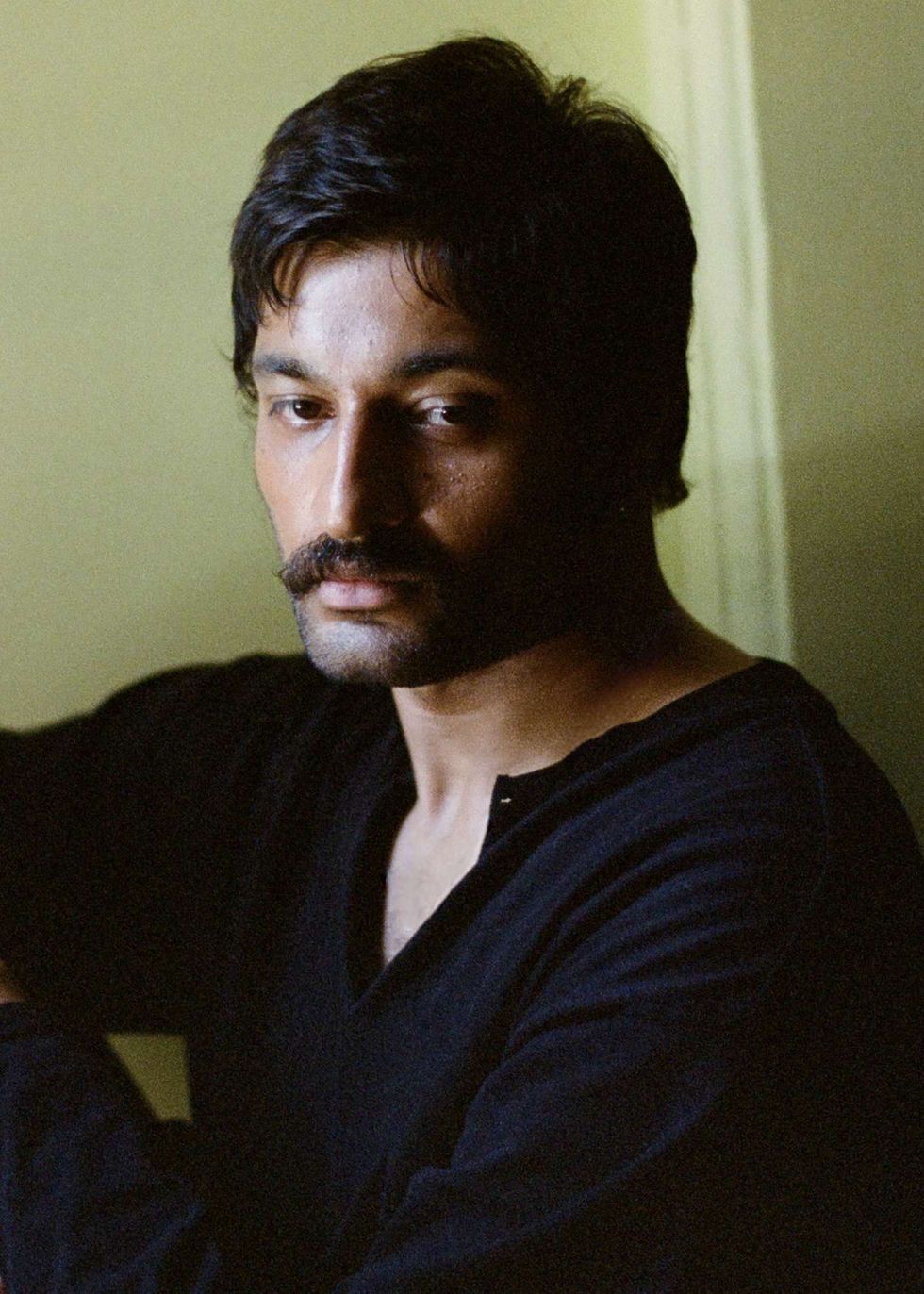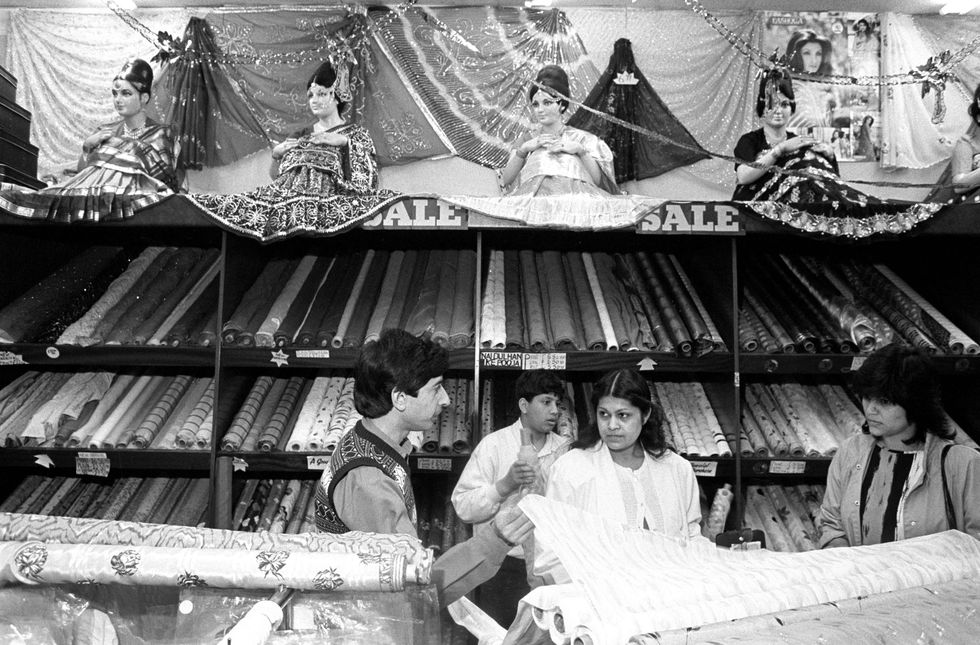AN ASIAN fashion designer has brought Bradford’s textile heritage to life with a new installation that celebrates south Asian tailor shops in the city.
London-based Zain Ali created Nisbet Road Tailor Shop, an immersive recreation of the tailoring spaces that flourished when thousands of people moved to Bradford from India, Pakistan and Bangladesh during the 1970s and 80s.
In an interview with Eastern Eye, Ali, who has roots in northwest England, said, “Bradford, the city of culture, is such a cultural hub and centre for the British Asian community. I, as a designer, wanted to marry what I do, my craft, with something that’s relevant to the city.”

The installation, which opened last month at Loading Bay, a new pop-up arts venue in Bradford city centre, moves beyond the well-documented story of textile mill workers to explore the cultural spaces that emerged around them.
“Where did they live, where did they meet? What did they do, and how did they record their identities in this new place? For many south Asian families, the answer lay in the neighbourhood tailor shops,” Ali, founder of the ZN ALI fashion label, said.
The artist, who is in his early thirties, said these shops were more than just places to buy clothes. They became spaces where newly arrived communities could experiment with style and carve out new identities.
The tailors brought traditional south Asian techniques and cuts, then adapted and evolved them to incorporate the fashions of 1970s and 80s Britain.

“You see a really fun and interesting interplay in Bradford especially, of the ways in which people dressed, because of these tailor shops that were kind of bridging these different identities,” Ali said.
The exhibition features archival pieces from outlets such as Bombay Stores and Bradford’s Museums and Galleries, alongside original textile installations by Ali himself.
Family photographs taken at Belle Vue Studio add an intimate dimension, showing how style evolved from then to now.
The tailor shops also provided crucial economic opportunities.
“A lot of women who were at home were able to stitch and make clothes for other local women,” Ali said. “So, it was an economic opportunity for a lot of women who needed to find work.”
He added, “But perhaps more significantly, during a period marked by civil unrest and racial tensions, these spaces allowed south Asian communities to assert both their Britishness and their cultural heritage.
“There was a sense of asserting their Britishness, not only by adapting Western fashion trends but by wearing them, and they also made it unique in their own way with elements of their culture.”
Ali said the project represents a homecoming. “I was raised in the north. I was shaped by the north of England, so this is a region that I am connected to. It’s an opportunity for me to come back to my roots that I think I’m not able to celebrate much.” His journey has taken him from Lahore, Pakistan to Forest Gate, east London, and then northwest England.
Ali launched his label in 2021 and ZN ALI now creates bespoke clothing and hand-woven textiles between studios in London and Lahore.
His work has included designing costumes for Shakespeare’s Globe Theatre and curating Moving the Needle, the inaugural Sustainable Fashion and Textile Symposium led by the British Council in Lahore. He has also worked with the British Fashion Council managing the Circular Fashion Innovation Network.
This opportunity to showcase Bradford’s textile heritage as part of Bradford 2025 holds special significance for Ali.
He said, “I think northern England was a very unrecognised and underappreciated region for how much it has contributed towards the British fashion industry. A lot of migrants are the ones who drove forward industrial growth for the country.”
The installation challenges perceptions about British multiculturalism that focus solely on London.
“It’s an opportunity and a way to challenge narratives about recognising identities, and cultures and multicultural moments that have happened outside of London,” Ali said.
Visitors to Nisbet Road Tailor Shop can expect a celebration, rather than a strict historical exhibition.
“It’s not a historical step-by-step runthrough, but what it is is a celebration of this history. It’s very visually led, and it’s about helping people who come in there to find a familiarity in what they’re seeing, whether it’s textiles or style,” Ali said.
The designer promises an experience that is “playful, physical and entertaining – a space where you can have fun” while engaging with colours, textiles and fabrics that tell Bradford’s diverse story.
“It’s a space for people to come and share their stories,” he said.
Nisbet Road Tailor Shop is now open at Loading Bay, Bradford city centre, as part of Bradford 2025.





